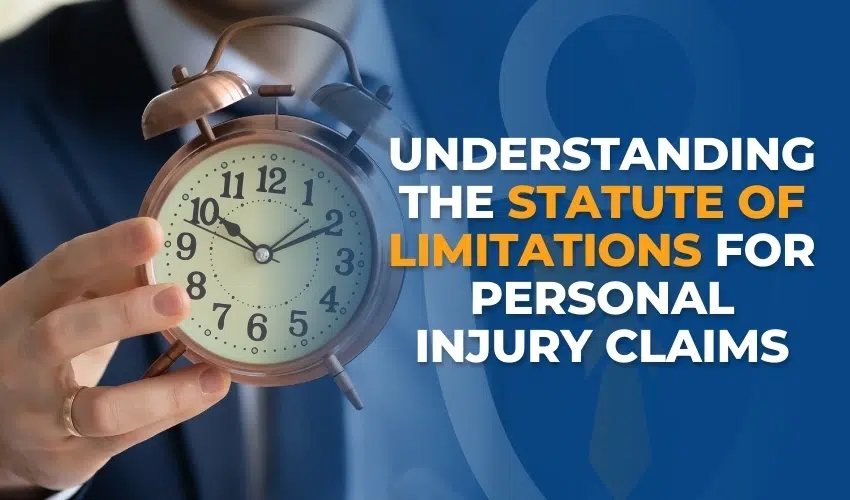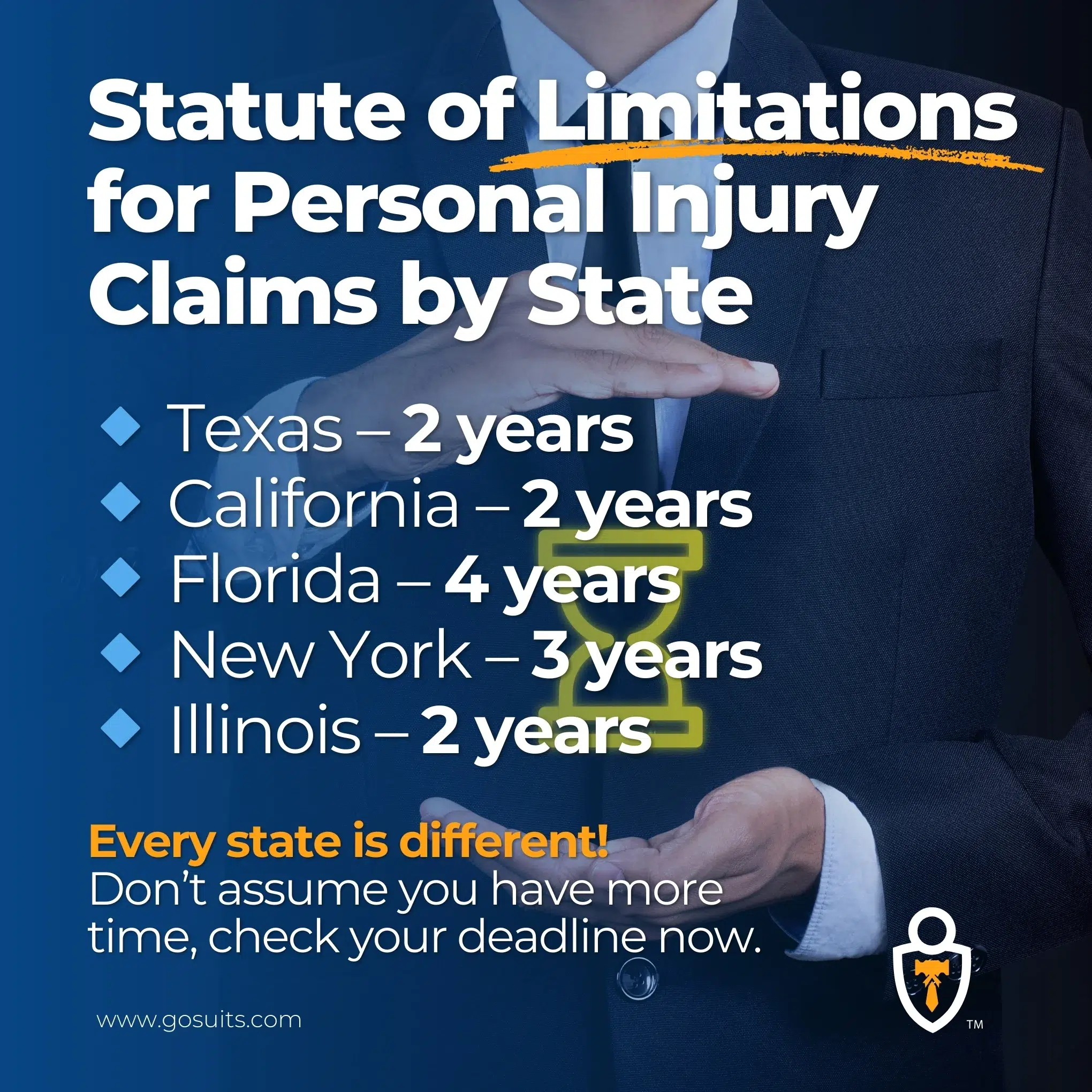When you suffer an injury because of someone else’s actions, the law provides a limited time frame to take legal action. This deadline is known as the statute of limitations, and it determines how long you have to file a personal injury claim in court. If a claim is filed after the deadline passes, the court may dismiss the case which can make it impossible to seek damages through the legal system.
The statute of limitations exists to ensure cases are resolved while evidence is still available. Over time, documents can be lost, memories fade, and physical evidence may no longer be reliable. The law encourages cases to be brought while the facts are still clear.
How Long Do You Have to File a Personal Injury Claim?
The time limit to file a personal injury lawsuit depends on the state where the injury occurred. In many states, the statute of limitations for personal injury claims is two or three years from the date of the accident, but this can vary. Some states have longer deadlines, while others require legal action to be taken sooner.
Understanding these time frames is essential because once the statute of limitations expires, the right to pursue a claim in court is usually lost. The countdown usually begins on the day the injury occurs, but in some cases, an exception may apply that alters the filing deadline.
Are There Exceptions That Can Change the Deadline?
Although statutes of limitations generally follow clear deadlines, certain exceptions may alter the time limit. Some of the most common exceptions include:
- The Discovery Rule: If an injury is not immediately noticeable, some states allow the statute of limitations to begin when the injury is discovered rather than when the accident occurred. This is common in cases involving exposure to harmful substances or delayed symptoms from an accident.
- Minors or Legal Incapacity: If the injured person was under 18 at the time of the accident or legally incapacitated, the statute of limitations may not begin until they reach legal adulthood or regain the ability to participate in legal proceedings.
- The Defendant’s Absence: If the person responsible for the injury leaves the state or takes steps to avoid being sued, some jurisdictions may pause the statute of limitations until they return or are located.
- Claims Against Government Entities: When an injury involves a city, state, or federal agency, the deadline to take legal action is often much shorter. Some states require notice to be filed within just a few months of the incident, and failing to do so can prevent a claim from moving forward.
Because exceptions vary by state and depend on specific circumstances, determining the correct deadline requires legal knowledge and careful analysis of the law. Personal injury attorneys assess the applicable statute of limitations based on the details of the case, ensuring that all filings are completed within the required timeframe. They also identify any exceptions that might extend or shorten the deadline, such as cases involving minors, government entities, or delayed injury diagnoses.
What Happens If the Deadline Passes?
If a personal injury claim is not filed before the statute of limitations expires, attorneys understand that courts will typically dismiss the case, eliminating the possibility of seeking damages through a lawsuit. Once this deadline passes, insurance companies and opposing parties are no longer legally required to negotiate or offer any resolution. Attorneys monitor these deadlines carefully so that all necessary filings are completed on time to preserve the right to pursue compensation.
There are rare situations where a court might allow an exception, but these cases are uncommon. Judges generally enforce the statute of limitations strictly, and missing the deadline often results in losing the right to take legal action.
How Does the Statute of Limitations Impact a Personal Injury Case?
The statute of limitations doesn’t just affect when a case must be filed—it also influences the strength of the claim. The more time that passes, the harder it can be to gather evidence. Witnesses may not remember events as clearly, surveillance footage may be erased, and important documents may no longer be available.
Insurance companies are also aware of legal deadlines and sometimes use delay tactics to their advantage. If they believe a claim is nearing the statute of limitations, they may slow down communication or prolong negotiations in the hope that the deadline will pass before legal action is taken.
Since the legal process involves more than just meeting a deadline, understanding how the statute of limitations affects each step of a case is important. Taking early action alongside your personal injury attorney helps ensure that evidence remains intact and that all necessary legal requirements are met within the required time frame.
Why Is Legal Guidance Important in Understanding the Statute of Limitations?
The rules surrounding the statute of limitations can be complex, especially when exceptions apply or when multiple legal issues are involved in a case. The time limit to file a claim is only one part of the legal process, and many steps must be completed correctly to proceed with a case.
Legal professionals handle several aspects of personal injury claims, including:
- Identifying the Correct Deadline: Since statutes of limitations vary by state and case type, determining the correct time limit requires careful legal analysis.
- Filing Necessary Paperwork on Time: Missing required filings or submitting documents incorrectly can cause unnecessary delays or even prevent a case from moving forward.
- Gathering and Preserving Evidence: Since time affects the availability of evidence, legal professionals work to ensure key documents, witness statements, and other proof are collected before they become difficult to obtain.
- Navigating Legal Exceptions: If an exception applies, the correct legal procedures must be followed to extend or modify the filing deadline.
While the statute of limitations might seem like just another legal rule, it has a significant impact on whether a claim can move forward. Understanding how these laws work, knowing when exceptions apply, and working with a qualified personal injury lawyer can make a difference in the outcome of a case.








